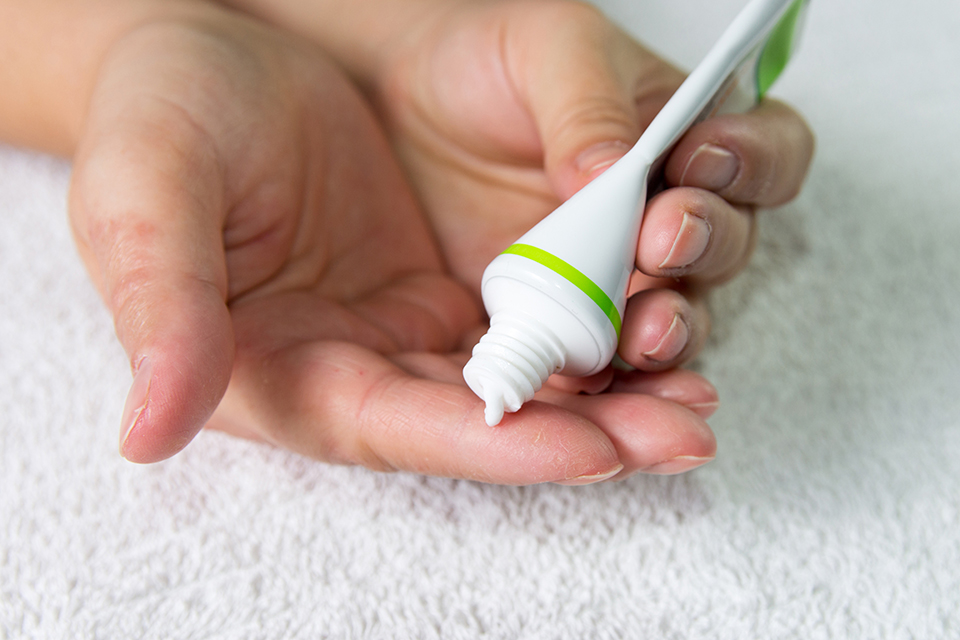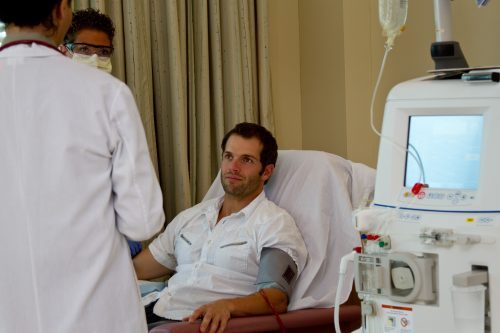
Creatine, a compound formed by the amino acids methionine, glycine, and arginine, has been shown to increase athletic performance during short duration and high intensity exercise. Creatine supplementation is usually consumed by professional and amateur athletes. Creatine supplementation has been shown to increase muscle creatinine and phosphocreatine, and there is evidence of therapeutic benefits in patients with type 2 diabetes, including improved insulin sensitivity and glucose tolerance.
However, there are concerns regarding the safety of indiscriminate use of creatine supplementation, particularly in terms of changes in the liver and kidneys. Alexandre de Souza e Silva, PhD, and colleagues recently conducted a systemic review and meta-analysis to examine whether creatine supplementation is associated with renal damage. Results were reported in the Journal of Renal Nutrition [2019;29(6):480-488].
The search was conducted in four electronic databases: PubMed, Web of Science, SciELO, and Cochrane. The terms searched were creatine supplementation AND function renal (creatine supplementation) AND kidney, (creatine supplementation) AND renal insufficiency. Two investigators independently screened the titles and abstracts to select relevant articles.
Eligibility criteria included: (1) randomized controlled trials; (2) published in peer-reviewed scientific journals; (3) case studies; and (4) studies assessing creatine supplements and kidney effects. Exclusion criteria were (1) animal studies; (2) review articles; (3) abstracts from conferences and unpublished studies; (4) lack of creatine supplementation; (5) no evaluation of renal damage following supplementation; and (6) prior renal damage before supplementation.
The initial search yielded 509 records. Of those, 28 were selected for full-text review and, after application of inclusion and exclusion criteria, 15 studies were eligible. The 15 studies were published from 1997 to 2003 and included a total of 497 subjects. The included studies were conducted in Brazil, England, the United States, the Netherlands, Uruguay, Belgium, Turkey, and Austria.
The studies included creatine supplementation groups (creatine intake of 4 to 20 g/day) and control groups (no creatine intake). Participants in the control groups received placebo solutions of 500 mL of carbohydrates, dextrose, maltodextrin, glucose polymer, and Gatorade powder. Follow-up intervals from the pre- to post-supplementation period ranged from 5 days to 132 weeks in the longitudinal studies; follow-up in case studies ranged from 6 weeks to 112 weeks.
The randomized controlled trials were evaluated using the Physiotherapy Evidence Database (PEDro) scale. The PEDro scale includes 11 items; however, the first item is not included in the final score, thus the scores ranges from one to ten. The non-randomized trials, case studies, and cross-sectional studies were evaluated using criteria developed by the Joanna Briggs Institute (JBI), using varying assessment tools for each study design in question.
In the evaluation of the randomized trials by the PEDro scale, the average score was six points. One study scored four points, four scored six points, two scored seven points, and one scored eight points. Using the JKBI critical evaluation tool to assess the non-randomized studies resulted in one score of five points and one of six points; the cross-sectional study obtained a score of four points; and the case reports presented an average of seven points.
The meta-analysis included five studies that evaluated serum creatine levels before and after subjects received either creatine supplementation or placebo, representing eight outcome measures in 220 subjects. The period of supplementation varied between 5 days and 112 weeks. Using the fixed-effects model, results of the meta-analysis suggested that there was no association between creatine supplementation and creatine levels. In addition, supplementation did not induce renal damage.
Three studies that evaluated the glomerular filtration rate through creatine clearance prior to and following creatine supplementation or placebo were included in the meta-analysis, representing five outcome measures in 136 individuals. In general, supplementation with creatine did not induce renal damage in those studies.
Six studies that examined plasma urea concentrations prior to and following creatine supplementation were included in the meta-analysis, representing 14 outcome measures in 382 participants. In general, the study results indicated no alteration in plasma urea levels with creatine supplementation.
Limitations to the current review and meta-analyses cited by the authors included lack of inclusion of additional variables related to renal damage, such as total protein, albumin, and globulin, as well as limiting the review to studies published in English or Portuguese.
In summary, the researchers said, “The findings indicate that creatine supplementation does not induce renal damage. Thus, creatine supplementation is relevant to clinicians in renal nutrition and/or working with interested populations, such as athletes of strength and bodybuilding.”
Takeaway Points
- Researchers in Brazil conducted a systematic review and meta-analysis to determine whether creatine supplementation was associated with renal damage.
- Fifteen studies were included in the qualitative analysis and six were included in the quantitative analysis.
- Results suggested that creatine supplementation does not induce renal damage in the studied amounts and durations.







 © 2025 Mashup Media, LLC, a Formedics Property. All Rights Reserved.
© 2025 Mashup Media, LLC, a Formedics Property. All Rights Reserved.